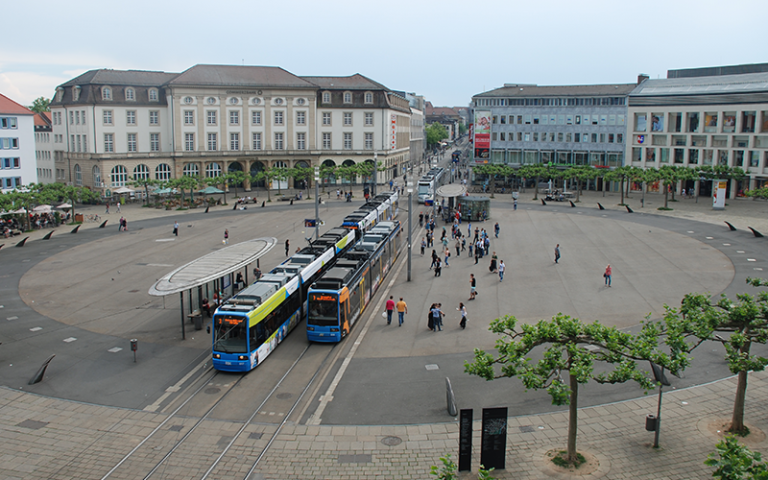Connecting deprived regions of Europe through innovative tram projects
UCL Bartlett researchers have examined the potential of tram projects to help tackle social and economic deprivation in North West Europe (NWE), influencing over €22 million in strategic investments.

28 April 2022
Public transport systems in deprived areas in North West Europe (NWE) have been difficult to fund. This has contributed to unsatisfactory public transport systems and local perceptions of disconnected ‘peripheral’ or ‘left-behind’ regions, plagued by long-running underinvestment.
To improve access to these deprived regions, a UCL-led team including Professor Robin Hickman (UCL Bartlett School of Planning) worked with 16 partners including public transport operators, local authorities and regional transport agencies. The research was part of Sintropher (Sustainable Integrated Transport Options for Peripheral European Regions).
Looking for examples of best practice, the project examined transport systems in Germany and France, exploring technologies, decision making and appraisal processes, and assessing the links between transport investment and social impacts.
Gathering evidence from pilot projects and demonstrations
Sintropher invested over 80% of its €26,800,000 funding in pilot projects and demonstrations, leading to new tram-based projects in the UK, Belgium, Germany, France, and the Netherlands. The researchers found that tram-based infrastructure can benefit poorer regions, facilitating connections between city centres and towns to bring employment and other opportunities to residents. Best practice lessons along the way allowed the projects to minimise costs and maximise social benefits across these areas.
Their best practice examples have inspired further development. The Light Rail Transit Association have used evidence from Sintropher to support tram-train projects in the UK including in Sheffield-Rotherham and the Manchester city region. The research was used to help design proposals for new regional public transport investments in Blackpool and other cities, such as Oxford, are considering regional tram-based investments, using lessons from Sintropher. The Bartlett’s Professor Sir Peter Hall (1932-2014) also initially proposed a high-speed rail connection linking Liverpool-Manchester-Leeds-Sheffield-Hull, which was subsequently developed as High-Speed Rail 3 (HS3) and Northern Powerhouse Rail.
Helping policymakers with transport decisions
Sintropher reseachers also explored how decisions about transport systems are made, finding that traditional project appraisals, which focus on economic factors, were too simplistic for transport planning. Instead, the team advocate Multi-Actor Multi-Criteria Assessments (MAMCA) which can account for local factors and the needs of different groups. They developed a new framework and decision support tool to help policymakers with transport decisions based on this approach.
This has inspired Transport for London (TfL) to draw on MCA as part of their appraisal for public transport-based regeneration projects such as Crossrail2. The POLIS network – a network of transport innovation professional across the EU – has hosted briefing papers advocating MCA approaches on its website using Sintropher findings.
A good practice interchange guide for NWE was published, and similar resources have been developed for the Asian Development Bank for use in planning high-speed railway stations and surrounding neighbourhoods in China.
The Bartlett School of Planning and Deutsche Gesellschaft für Internationale Zusammenarbeit (GIZ) have also developed a sustainable urban mobility online course which has been taken by over 10,000 participants and given attendees the tools to discuss and plan sustainable mobility projects.
Research synopsis
Connecting deprived regions in North West Europe through innovative tram projects
Bartlett researchers have examined the potential of tram-based transport systems to help tackle social and economic deprivation in North West Europe (NWE). The research findings have influenced over €22 million in strategic investments across over 50 areas in NWE. They have shaped regeneration strategy in urban areas and guided project appraisal approaches in NWE and internationally.
Links
- Professor Robin Hickman’s academic profile
- The Bartlett School of Planning, UCL
- The Bartlett, UCL Faculty of the Built Environment
- The Bartlett REF 2021
Image
- Image credit: Rob Hickman
 Close
Close

